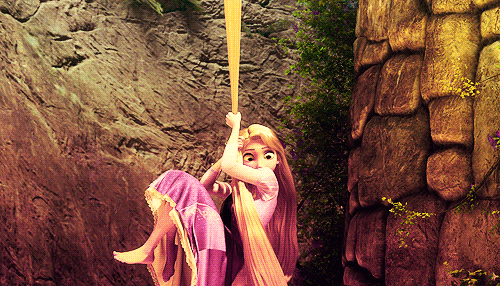I'm posting an essay I wrote - assigned for school, as will be obvious, but nonetheless I did write opinions that were in fact my own and therefore are worth posting. This was written when I was first starting freshman year of college after two gap years so be kind.
Using three very specific texts, namely Eve's mention in the second and third chapters of the Bible's Genesis and Pandora's mention in Hesiod's Theogony, lines 507-631, and Hesiod's Works and Days lines 42-100ish, we were to compare Pandora and Eve. However, we were strictly to avoid thinking of Pandora in the sense of the well-known myth - her being forbidden to open a box, which out of curiosity she opens and it turns out to have all the bad things in it. Apparently though this tale is widespread there is no ancient primary source that mentions anything like it, other than she opened a cask at some point, and therefore our beloved legend must be some sort of modern development.
Thus our modern minds would be especially tempted to have an Eve-like interpretation of Pandora off the bat - curiosity leading to the downfall of man, etc., which is hardly the way to approach the actual proof of period views of these ladies.
(Harry Bates - Pandora, 1891, front
- on temporary display at Tate Britain, August 2010)
At any rate, this essay is strictly the interpretation of texts, not involving much outside knowledge of culture, and with no other scholarly sources.
Here are links to the texts if you wish to read or refer to them at any point -
these aren't the translations I used, but I don't think I can legally share those with you, and these are close enough of course:
The Bible: Genesis chapters 2 and 3
Hesiod Theogony starting line 507
Hesiod Works and Days starting line 42
Yay! Here we go.
Pandora and Eve; Femmes Fatales of Old
In the creation of Woman the Hebrews and Greeks saw great potential for explaining the dynamics between the sexes; both stories call to question the function of woman with reference to Man and God. In not asking the reverse – what function man and god has to woman - Pandora and Eve are both rendered second class citizens in their own creation stories. Pandora and Eve, through the weakness indulgence creates, are both sources of all womanhood and the doom of mankind; and, as opposed to the natural creation of Man out of dust (whether it be the Hebrew God or the Greek Prometheus), these original women are created differently and for a different and specific purpose, as an afterthought – certainly not part of an original plan – , and solely for man. However this is where there likenesses end; for the Hebrew Bible goes to lengths to give Eve enough autonomy to decide to take of the forbidden fruit, and, though it brands woman forever as the original sinner, in so doing she must be made a person to be capable of such an act. With Hesiod’s Pandora, she is a curse hidden as a gift that was meant to be returned, and that is all; she is a mere object and burden and her purpose and self are one in the same.
Neither Pandora nor Eve was born. They were created; after man and for Man, through a divine imperative. Made through a completely different process than Man, in a very specific and graphic way, they are in a sense rendered less natural than Man and less human. Consider Pandora’s second name after “Woman” – “manufactured maiden” (Theogony 510-515) and Eve’s first description by Man as “bone of my bones/ and flesh of my flesh” (2:23); the picture of the Hebrew God effectively drugging Man in order to extract the necessary body parts to assemble Eve feels more contrived than sacred: "the rib that the Lord God had taken from the man he made into a woman" (2:22). This distinction between Woman and Man leads to the concept of different roles; of weaknesses in particular, perhaps through unconventional assemblage. Both Eve and Pandora, through their relationship with man, bring much “toil” (3:17, Theogony 595-600) to him, to “hurry about [his] work…until the sun/ Goes down” “by the sweat of [his] face” (3:19). As result of her influence over him, he is “cursed” (3:17) – in the case of Pandora, she is literally called “the lovely curse” (Theogony 585-590).
Adam and Eve, Peter Paul Rubens, c. 1597
Though both women are referred to solely though the roles they play, that is where the material difference between them is found. Their names speak of the function assigned to them: “Pandora” meaning “all gifts” – “the gifts which all the gods/ Had given her” (Works and Days 80-85) and “Eve” meaning “living,” “because she was the mother of all living” (3:20). Eve, despite her mistakes, is nonetheless called only a few simple names – “woman” (2:22, 2:23, 3:01, 3:02, 3:04, 3:06, 3:12, 3:13, 3:13, 3:16) “wife” (2:25, 3:08, 3:20, 3:21, 3:17) “Eve” (3:20) and “mother” (3:20). She is a member of the family. She was made because “It is not good that man should be alone;” she is Man’s “helper and partner.” Not so with Pandora. Her name’s meaning is a plural noun; and she herself represents a collection of objects: women. Pandora is called many, many vicious names – “an evil thing for [Man’s] delight” (Works and Days 55-60), “this ruin,” and “this ruin of mankind” (Works and Days 55-60, 80-85) “deep and total trap” (Works and Days 70-75) “Into the image of a modest girl” (Works and Days 70-75); it is made clear she was designed as a false sexual parasite and nothing more – to “fill [her belly] up/ With products of the toil of others” (Theogony 595-600).
Pandora, Jules Joseph Lefebvre
In her entire story in both the Work and Days and Theogony scripts she only commits two verbs: “thrilled” (Theogony 585-590) and “opened” (Works and Days 90-95); the first is the ironically innocent depiction of the a girl as belle of the ball “thrilled by all her pretty trappings”, unaware that she was brought “to a place/ Where gods and men were gathered” in order to “[seize] the mortal men and gods,/ To see the hopeless trap, deadly to men” (Theogony 585-590). In the Works and Days version it is made clear that she is not so naïve and childlike as her first verb would make her appear – for, thanks to Hermes, she has been given “sly manners, the morals of a bitch” “lies and persuasive words and cunning ways” – and, most importantly, Aphrodite’s gift, “painful, strong desire, and body-shattering cares” (Works and Days 60-80). Through these terrible, if passive vices she is made to be the “price for men to pay for fire,/ An evil” (Theogony 570-575), being desirable, irritable, and useless simultaneously; with only enough personality to carry out her second and last verb: “But now the woman opened up the cask, and [scatter] pains and evils among men” (Works and Days 90-95) – that is, disease and death.
Attributed to the Niobid Painter.
The Creation of Pandora.
Attic Red Figure, Calyx krater shape.
Archaic Period. British Museum, London, UK.
Creation of Pandora, interior of Cylix,
470-460 B.C., British Museum, London, England
Eve is guilty of many verbs – “saw” “desired” “took” “ate” and “gave” all appear in the same verse (3:06); likewise she is born naked, whereas Pandora’s very creation is expressed through the applying of clothes: she has “robes” “belt” “necklaces” “wreath” “crown” “flowers into a crown” – all detailed and made by Gods specialized in those fields (Theogony 570-585, Works and Days 60-85). Eve’s lack of adornment emphasizes her person and her actions; Pandora is defined as all adornment; even her “skills” are bestowed upon her by the Gods. Eve speaks; Pandora does not. Though both illustrate the power of indulgence to destroy – Eve partaking of the fruit, Pandora inciting lust –Pandora was specifically created to, and Eve was not. Most importantly, Eve is given punishment, and Pandora is punishment incarnate – Eve is doomed to “desire…for [her] husband” concurrent with “pangs of childbirth” (3:16) whereas Pandora causes man to “[live] all his life/ With never-ending pain inside his heart/ And on his mind” (Theogony 610-615), and to add insult to injury, she (and so saying, all women) is “No help to [men] in poverty/ But ready enough to share with [him] in wealth” (Theogony 590-595). Eve sins (whether arguably to her lesser nature or no), and she suffers consequences; Pandora merely exists as consequence to others.
The two famed female figures may both have a reputation as femmes fatales, but they carried out their sentence on mankind in very different fashions; Eve diverting from a chosen path through personal will, Pandora simply in being herself as she was created. They are both cited as the first woman, and both directly or indirectly caused punishment to be inflicted on the whole of man; however the Hebrew account chose to personify where the Greeks objectify. Neither can really make proud any conventionally modern feminist group; but perhaps the ideology behind Eve can more clearly exemplify the Hebrew view of woman was mother and wife first, sinner second.
~end of essay~




































